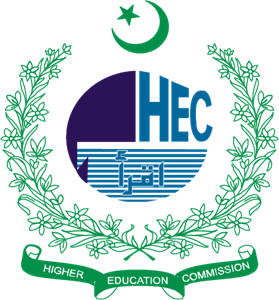Municipal Solid Waste Management using GIS Analysis: A Case Study of Sehwan City
DOI:
https://doi.org/10.33317/ssurj.515Keywords:
Municipal solid, waste management, GIS, Route optimization, Waste collection.Abstract
One of the fundamental issues of the 21st century, and one of the key tasks of a municipal administration is to manage solid waste effectively and efficiently. Cities are developing extremely, and the issue of Municipal Solid Waste (MSW) is becoming critical, as a result of the growth in quantity and complexity of generated waste and the shortage of land for its disposal. By 2050, the world's waste creation will have more than doubled the rate of population increase. The area is mostly residential, and most of the solid waste is created in the home, such as food and vegetable waste. There are few bins places in Sehwan city and those are not placed at the proper location, due to this reason inhabitants of the city are throwing their municipal waste on the street sides and vacant plots. The research aim of the study was to develop a GIS technology. This research contained three objectives, to Identify the existing municipal solid waste management condition and their effect on different factors such as health and the environment, to Reallocation of waste collection bins in the study area using GIS buffer analysis, and to propose a route plan for the collection of municipal solid waste using GIS network analysis. Furthermore, based on GIS technology, this work provides a framework for optimizing the waste collection and transportation system. The result showed that the misplacement of waste bins the Sehwan city can affect the environment, waste laying around the bins cause land pollution, and also municipal waste on road, affects the health of people. More than 82% of the inhabitants are unsatisfied with the management of the solid waste disposal system in the study area also 90% of residents are suffered from different diseases. This study will help the planner and authorities cope with the issues of municipal solid waste. Municipal authorities need to follow technologies and research studies for solving the solid waste issues of local peoples’ in their city.
References
Laurieri, N., Lucchese, A., Marino, A., & Digiesi, S. (2020). A door-to-door waste collection system case study: a survey on its sustainability and effectiveness. Sustainability, 12(14), 5520.
Un-Habitat. (2010). Solid waste management in the world's cities. Solid Waste Management in the World's Cities: Water and Sanitation in the World's Cities 2010, London, Washington DC. Un Habitat.
Khodaparast, M., Rajabi, A. M., & Edalat, A. (2018). Municipal solid waste landfill siting by using GIS and analytical hierarchy process (AHP): a case study in Qom city, Iran. Environmental earth sciences, 77(2), 1-12
Verma, A., & Bhonde, B. K. (2014). Optimization of municipal solid waste management of Indore City using GIS. International Journal on Emerging Technologies, 5(1), 194.
Sujauddin, M., Huda, S. M. S., & Hoque, A. R. (2008). Household solid waste characteristics and management in Chittagong, Bangladesh. Waste management, 28(9), 1688-1695.
Singh, A. (2019). Remote sensing and GIS applications for municipal waste management. Journal of environmental management, 243, 22-29.
Masood, M., Barlow, C. Y., & Wilson, D. C. (2014). An assessment of the current municipal solid waste management system in Lahore, Pakistan. Waste Management & Research, 32(9), 834-847.
Islam, S. M., Rahman, S. H., Hassan, M., & Azam, G. (2016). Municipal solid waste management using GIS application in Mirpur area of Dhaka city, Bangladesh. Pollution, 2(2), 141-151.
Kaza, S., Yao, L., Bhada-Tata, P., & Van Woerden, F. (2018). What a waste 2.0: a global snapshot of solid waste management to 2050. World Bank Publications.
Das, S., Lee, S. H., Kumar, P., Kim, K. H., Lee, S. S., & Bhattacharya, S. S. (2019). Solid waste management: Scope and the challenge of sustainability. Journal of cleaner production, 228, 658-678.
Tınmaz, E., & Demir, I. (2006). Research on solid waste management system: to improve existing situation in Corlu Town of Turkey. Waste management, 26(3), 307-314.
Iqbal, S. (2021). Recycle Demolish Structure Concrete as Coarse Aggregate in Concrete with Incorporation of Glass Fiber. Sir Syed University Research Journal of Engineering & Technology, 11(2).
Khoso, A. R., Memon, A. H., Pathan, A. A., & Akhund, M. A. (2018). Solid waste management issues in Hyderabad city. Mehran University Research Journal of Engineering & Technology, 37(3), 653-662.
Blank, J., Clary, C., & Nichiporuk, B. (2014). Drivers of long-term insecurity and instability in Pakistan: Urbanization. Rand Corporation.
Ghauri, W. U. (2018, February). Waste to energy potential in Pakistan. In Expert Group Meeting on Sustainable Application of Waste-to-Energy in Asian Region.
Badran, M. F., & El-Haggar, S. M. (2006). Optimization of municipal solid waste management in Port Said–Egypt. Waste Management, 26(5), 534-545.
Rada, E. C., Ragazzi, M., & Fedrizzi, P. J. W. M. (2013). Web-GIS oriented systems viability for municipal solid waste selective collection optimization in developed and transient economies. Waste management, 33(4), 785-792.
Nguyen-Trong, K., Nguyen-Thi-Ngoc, A., Nguyen-Ngoc, D., & Dinh-Thi-Hai, V. (2017). Optimization of municipal solid waste transportation by integrating GIS analysis, equation-based, and agent-based model. Waste management, 59, 14-22.
Baig, F., Rana, I. A., & Talpur, M. A. H. (2019). Determining factors influencing residents’ satisfaction regarding urban livability in Pakistan. International Journal of Community Well-Being, 2(2),
-110.
Gilla, R., Kalwara, S., & Brohia, S. (2022). A Study on Existing Mechanism of Municipal Solid Waste Management in Dadu City.
Asase, M., Yanful, E. K., Mensah, M., Stanford, J., & Amponsah, S. (2009). Comparison of municipal solid waste management systems in Canada and Ghana: A case study of the cities of London,
Ontario, and Kumasi, Ghana. Waste management, 29(10), 2779-2786.
Mahar, A., Malik, R. N., Qadir, A., Ahmed, T., Khan, Z., & Khan, M. A. (2007, September). Review and analysis of current solid waste management situation in urban areas of Pakistan. In
Proceedings of the international conference on sustainable solid waste management (Vol. 8, p. 36). Citeseer.
Aslam, S., Ali, F., Naseer, A., & Sheikh, Z. (2022). Application of material flow analysis for the assessment of current municipal solid waste management in Karachi, Pakistan. Waste Management &
Research, 40(2), 185-194.
Khan, S., Alvarez, L. C. M., & Wei, Y. (2018). Sustainable management of municipal solid waste under changing climate: A case study of Karachi, Pakistan. Asian Journal of Environmental Biotechnology, 2(1), 23-32.
Otoma, S., Hoang, H., Hong, H., Miyazaki, I., & Diaz, R. (2013). A survey on municipal solid waste and residents’ awareness in Da Nang city, Vietnam. Journal of Material Cycles and Waste
Management, 15(2), 187-194.
Hung, M. L., Ma, H. W., & Yang, W. F. (2007). A novel sustainable decision making model for municipal solid waste management. Waste management, 27(2), 209-219.
Jaunich, M. K., Levis, J. W., DeCarolis, J. F., Gaston, E. V., Barlaz, M. A., Bartelt-Hunt, S. L., ... & Jaikumar, R. (2016). Characterization of municipal solid waste collection operations. Resources, Conservation and Recycling, 114, 92-102.
Chandioa, I. A., Talpura, M. A. H., & Talpura, M. A. N. (2016). 201. Municipal Solid Waste (MSW) landfill Site Modeling Using Geographic Information System (GIS) and Multi-Criteria Decision Analysis (MCDA): Case study of Sukkur City, Pakistan.
Odonkor, S. T., Frimpong, K., & Kurantin, N. (2020). An assessment of house-hold solid waste management in a large Ghanaian district. Heliyon, 6(1), e03040.
Nithya, R., Velumani, A., & Senthil Kumar, S. R. R. (2012). Optimal location and proximity distance of municipal solid waste collection bin using GIS: a case study of Coimbatore City. WSEAS Transactions on environment and development, 8(4), 107-119.
Yukalang, N., Clarke, B., & Ross, K. (2018). Solid waste management solutions for a rapidly urbanizing area in Thailand: Recommendations based on stakeholder input. International journal of environmental research and public health, 15(7), 1302.
Minghua, Z., Xiumin, F., Rovetta, A., Qichang, H., Vicentini, F., Bingkai, L., ... & Yi, L. (2009). Municipal solid waste management in Pudong new area, China. Waste management, 29(3), 1227-1233.
Ahmed, S. M., Muhammad, H., & Sivertun, A. (2006, September). Solid waste management planning using GIS and remote sensing technologies case study Aurangabad City, India. In 2006
International Conference on Advances in Space Technologies (pp. 196-200). IEEE.
Kashid, S., Ajay, N., & Karbhari, K. (2015). Solid Waste Management: Bin Allocation and Relocation by Using Remote Sensing & Geographic Information System. International Journal
of Research in Engineering and Technology, 4(12).
Tavares, G., Zsigraiova, Z., Semiao, V., & da Graça Carvalho, M. (2008). A case study of fuel savings through optimisation of MSW transportation routes. Management of Environmental Quality: An
International Journal.
Alvarez, J. L., Larrucea, M. A., Quero, S. F. C., & del Valle, A. J. (2008). Optimizing the collection of used paper from small businesses through GIS techniques: The Leganés case (Madrid, Spain). Waste Management, 28(2), 282-293.
Bhambulkar, A. V. (2011). Municipal solid waste collection routes optimized with arc GIS network analyst. International journal of advanced engineering sciences and technologies, 11(1), 202-207.
Chalkias, C. H. R. I. S. T. O. S., & Lasaridi, K. A. T. I. A. (2009, September). Optimizing municipal solid waste collection using GIS. In 5th International Conference on Energy, Environment,
Ecosystems and Sustainable Development/2nd International Conference on Landscape Architecture, Greece. In: Proceedings of Energy, Environment, Ecosystems, Development and, Landscape
Architecture (pp. 45-50).
Khahro, S. H., Chandio, I. A., & Talpur, M. A. H. (2019). Data Preparation for GIS based Land Suitability Modelling: A Stepped Approach. In E3S Web of Conferences (Vol. 101, p. 02001). EDP
Sciences.
Khahro, S. H., Matori, A. N., Chandio, I. A., & Talpur, M. A. H. (2014). Land suitability analysis for installing new petrol filling stations using GIS. Procedia Engineering, 77, 28-36.
Talpur, M. A. H., Chandio, I. A., Memon, I. A., & Qureshi, T. A. (2014). Computer-based database system: rapid response for rural planning agencies to devise transport policies. Indian Journal of
Science and Technology, 7(10), 1603-1612.
Talpur, M. A. H., Khahro, S. H., Ali, T. H., Waseem, H. B., & Napiah, M. (2022). Computing travel impendences using trip generation regression model: a phenomenon of travel decision making process of rural households. Environment, Development and Sustainability, 1-24.
Talpur, M. A. H., Madzlan, N., Irfan, A., Chandio, I. A., & Hussain, S. (2014). Time-Space Geography: A Creditable Transport Accessibility Measure for Rural Dwellers. In Applied Mechanics and Materials (Vol. 567, pp. 763-768). Trans Tech Publications Ltd.
Talpur, M. A. H., Napiah, M., Chandio, I., & Khahro, S. H. (2012). Transportation Planning Survey Methodologies for the Proposed Study of Physical and Socio-economic Development. Modern Applied Science, 6(7).
Talpur, M. A. H., Napiah, M., Chandio, I. A., Qureshi, T. A., & Khahro, S. H. (2014). Development of a regional transport policy support system for rural planning agencies in developing world. Procedia Engineering, 77, 2-10.
Jawed, A., Talpur, M. A. H., Chandio, I., & Noor, P. (2019). Impacts of inaccessible and poor public transportation system on urban environment: evidence from Hyderabad, Pakistan. Engineering, Technology & Applied Science Research, 9(2), 3896-3899
Downloads
Published
How to Cite
Issue
Section
Categories
License
Copyright (c) 2023 Gopal Das, Mir Aftab Hussain Talpur, Komal, Imtiaz Ahmed Chandio (Author)

This work is licensed under a Creative Commons Attribution 4.0 International License.









